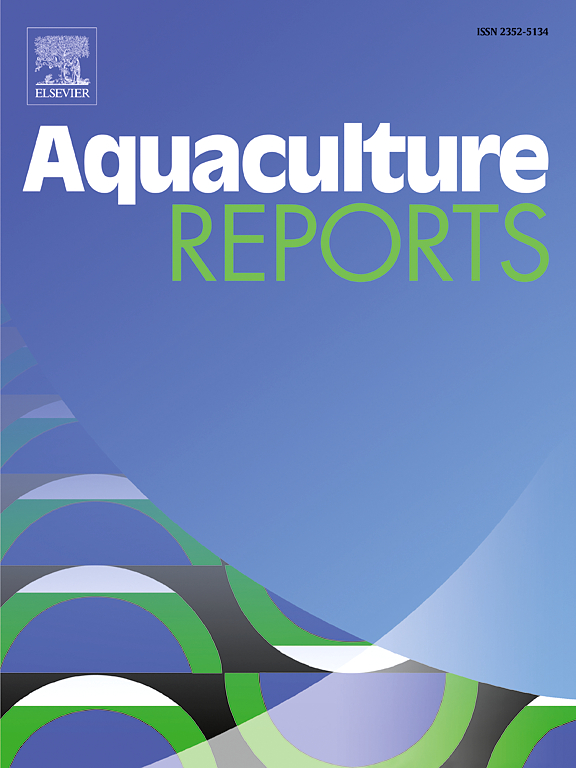Predicting aquaculture potential of an essential shrimp via species distribution models in China under climate change
IF 3.2
2区 农林科学
Q1 FISHERIES
引用次数: 0
Abstract
Aquatic products are a crucial component of global food systems, and the impacts of climate change on aquaculture are becoming increasingly significant. Thus, it is essential to rigorously evaluate the sustainability of aquatic food production in the face of climate change. This study investigates the potential effects of climate change on the aquaculture of the freshwater shrimp Macrobrachium rosenbergii in China, using advanced species distribution models (SDMs). By compiling a comprehensive dataset of aquaculture sites across China, we developed a robust set of SDMs to predict the suitability of aquaculture regions under both current and future climate scenarios. Our models demonstrated high predictive accuracy, revealing that the distribution of suitable aquaculture areas for M. rosenbergii is primarily determined by extreme temperature variations during the warmest and coldest months. Under present climate conditions, these areas are concentrated in eastern and southern China. However, projected climate changes could significantly reduce suitable regions, with losses ranging from approximately 6.00–29.11 %. These results highlight the critical need to consider the long-term effects of climate change when developing strategic plans for aquaculture management and production in China.
基于物种分布模型的气候变化下中国虾类养殖潜力预测
水产品是全球粮食系统的重要组成部分,气候变化对水产养殖的影响日益显著。因此,在气候变化的背景下,严格评估水产食品生产的可持续性至关重要。利用先进的物种分布模型(SDMs)研究了气候变化对中国罗氏沼虾(Macrobrachium rosenbergii)养殖的潜在影响。通过编制中国各地水产养殖场的综合数据集,我们开发了一套稳健的SDMs来预测水产养殖区在当前和未来气候情景下的适宜性。我们的模型显示出较高的预测精度,表明罗氏沼虾适宜养殖区域的分布主要由最温暖和最寒冷月份的极端温度变化决定。在目前的气候条件下,这些地区主要集中在中国东部和南部。然而,预估的气候变化可能显著减少适宜区域,损失范围约为6.00 - 29.11% %。这些结果突出表明,在制定中国水产养殖管理和生产战略计划时,迫切需要考虑气候变化的长期影响。
本文章由计算机程序翻译,如有差异,请以英文原文为准。
求助全文
约1分钟内获得全文
求助全文
来源期刊

Aquaculture Reports
Agricultural and Biological Sciences-Animal Science and Zoology
CiteScore
5.90
自引率
8.10%
发文量
469
审稿时长
77 days
期刊介绍:
Aquaculture Reports will publish original research papers and reviews documenting outstanding science with a regional context and focus, answering the need for high quality information on novel species, systems and regions in emerging areas of aquaculture research and development, such as integrated multi-trophic aquaculture, urban aquaculture, ornamental, unfed aquaculture, offshore aquaculture and others. Papers having industry research as priority and encompassing product development research or current industry practice are encouraged.
 求助内容:
求助内容: 应助结果提醒方式:
应助结果提醒方式:


